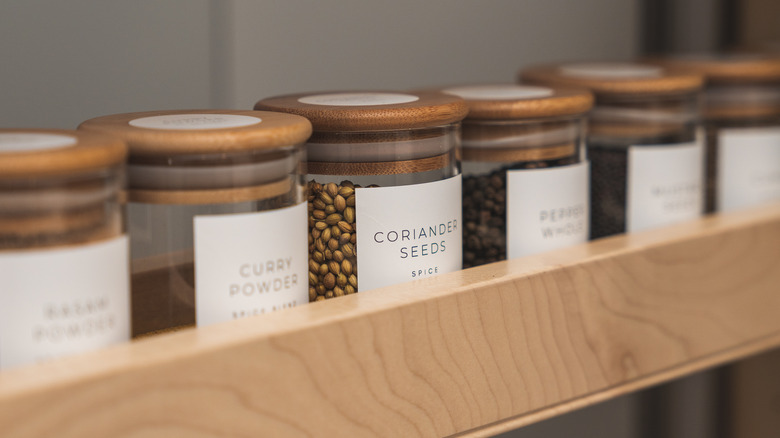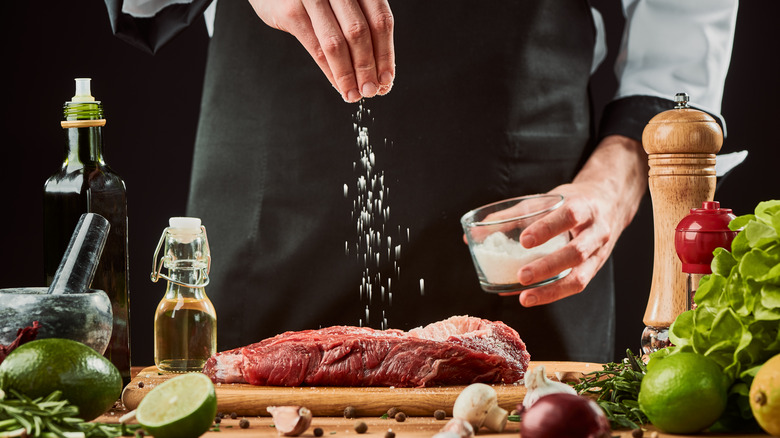How To Avoid Cross-Contaminating Your Spice Shakers When Cooking Raw Meat
It's a situation every home chef finds themselves in at one time or another. They've seasoned raw meat and then picked it up to put it in the pan only to realize more seasoning is needed, but their hands have already touched the meat. To learn more about how cross-contamination occurs, the United States Department of Agriculture (USDA) conducted experiments and discovered that of the surfaces in the kitchen, spice containers had the highest concentration of bacteria. In fact, just a little less than half (48%) of spice containers had bacteria on them, which can lead to illness.
How many people get sick from foodborne illnesses is no small number. According to the U.S. Centers for Disease Control and Prevention (CDC), every year, it is estimated that 48 million people are stricken by a foodborne illness. Of those, 128,000 people find themselves going to a hospital, and around 3,000 people die. The most common symptoms of food poisoning, which is caused by germs such as salmonella or E. coli, are diarrhea, stomach pains or cramps, nausea, vomiting, and fever, according to the CDC. Considering these facts, it's important to take precautions when cooking.
A few tips to stay healthy
There are a few important steps that can be taken to easily prevent cross-contamination of raw meat and seasoning containers in the kitchen in order to keep everyone healthy. One recommendation from Consumer Reports advises to always wash your hands before grabbing a seasoning container. Another tip from Consumer Reports is to put the spices needed for cooking into small dishes and then add them to the food as needed per the recipe (think like your favorite cooking TV show chef).
The CDC also has some suggestions on how to avoid cross-contamination in the kitchen, such as washing hands before, during, and after food preparation and then again before eating. This will help to eliminate germs from being spread to utensils and seasoning containers. It's also advantageous to wash things you and your ingredients touch, such as cutting boards, countertops, and seasoning containers after using each item.
With a little more precautionary steps, it's easy to stay healthy while making scrumptious food in your kitchen.

